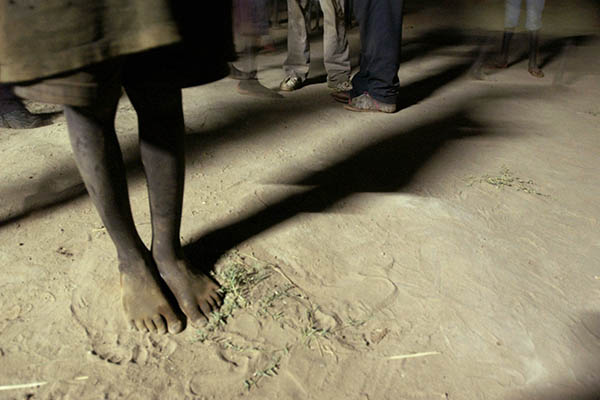
File photo. Jose Cendon—AFP
Annual Trafficking in Persons Report claims Islamabad has provided material support to non-state groups that recruit and use child soldiers
The United States on Thursday released its annual Trafficking in Persons Report, adding Pakistan to the Child Soldiers Prevention Act (CSPA) list as a state that has “governmental armed forces, police, or other security forces, or government-supported armed groups that recruit or use child soldiers.” Pakistan was also retained on the Tier 2 watchlist for a second consecutive year, with the report noting efforts were underway to bring the country into compliance with the Trafficking Victims Protection Act, 2000.
The CSPA designation, barring a presidential waiver, prohibits U.S. assistance for international military education and training, foreign military financing, excess defense articles, and peacekeeping operations. It also prohibits the issuance of licenses for direct commercial sales of military equipment to such governments. It would come into effect on Oct. 1, 2021, and remain effective through the upcoming fiscal.
According to the 2021 Trafficking in Persons (TIP) Report, the U.S. Child Soldiers Prevention Act requires the annual publication of a list of foreign governments that have recruited or used child soldiers during the previous reported year—April 1, 2020 to March 31, 2021. Apart from Pakistan, the 2021 listing includes Afghanistan, Burma, Democratic Republic of Congo, Iran, Iraq, Libya, Mali, Nigeria, Somalia, South Sudan, Syria, Turkey, Venezuela and Yemen.
The report defines “child soldiers” as any person under 18 who directly participates in hostilities as a member of governmental armed forces, police, or other security forces. Those compulsorily recruited into governmental armed forces, police, or other security forces are included, as are those under 15 who have been voluntarily recruited into governmental armed forces, police or other security forces.
Any person under 18 years of age who has been recruited or used in hostilities by armed forces distinct from the armed forces of a state is also considered a child soldier, as it any person serving in support roles such as “cook, porter, messenger, medic, guard, or sex slave.”
The TIP report claims that during the past year, “the government [of Pakistan] provided material support to non-state armed groups that recruited and used child soldiers.” It says that Islamabad did not report investigating, prosecuting, or convicting individuals for child soldiering offenses. “The government did not report any efforts to address local government officials’ reportedly endemic perpetuation of bonded labor, which created a culture of impunity for offenders. Feudal landlords and brick kiln owners used their political connections to facilitate their use of forced labor,” it added.
Tier-2 designation
According to the report, the Government of Pakistan does not fully meet the minimum standards for the elimination of trafficking but is making significant efforts to do so. “These efforts included finalizing implementation rules for the 2018 Prevention of Trafficking in Persons Act, adopting a new five-year national action plan to combat trafficking in persons and migrant smuggling crimes, and referring more potential trafficking victims for care than the previous reporting period,” it said, especially praising the Punjab province for reporting more overall convictions for trafficking the past year compared to the previous reporting period. “In Sindh, local officials continued to perpetrate bonded labor in brick kilns and on farms with impunity,” it regretted, adding that the government had failed to take adequate action against credible reports of official complicity in trafficking.
Recommendations
The TIP report has listed the steps that should be taken by Pakistan to get its name removed from the tier-2 watchlist. It says that prosecutions and convictions of both sex trafficking and forced labor must be increased, including in cases allegedly involving complicit officials. It also urges the government to instruct labor departments to refer all suspected bonded labor cases to police for criminal investigation and increase the number of bonded labor victims identified and referred to rehabilitation services through training of provincial police, labor inspectors, and social services on standard operating procedures. “Cease support to non-state armed groups that recruit and/or use child soldiers,” it said, and sought the removal of any laws that impose fines instead of imprisonment for sex trafficking offenses.
Similarly, it said that officials should be trained to implement Prevention of Trafficking in Persons Act, 2018 and victims should not be penalized for acts their traffickers compelled them to commit. “Increase the quality and availability of trafficking-specific services, including for males,” it said and also sought specialized prosecutors and judges to hear trafficking cases. It also sought expansion of services for bonded laborers, including shelter, identity documents, and legal assistance, and regular inspections of brick kilns in accordance with relevant laws to identify and prosecute bonded labor.
The report stressed that steps should be taken to eliminate all recruitment fees charged to workers and restrictions on female migration should be lifted. Pakistan should also accede to the 2000 U.N. TIP Protocol, it added.
